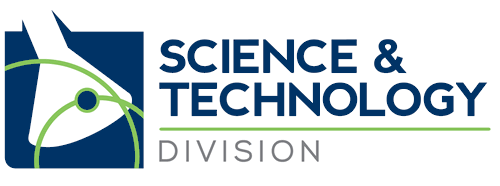1.2K
Interview by Susanna Weerth
This year the American Foundation for Translation and Interpretation JTG Scholarship in Science and Technical Translation or Interpretation was awarded to Jennifer Clowery. The scholarship supports undergraduate or graduate students who plan to enroll or are training at an accomplished US university or college and have demonstrated achievements in the field as stated by their teachers or supervisors. More information about the award can be found on the ATA website: https://www.afti.org/award_jtg.php
If you are interested in starting or switching to a career in science and technical translation and want to know how to start you might be interested in reading the advice from this year’s JTG awardee Jennifer Clowery. Jennifer graciously provided answers to questions on how she became a science and technology translator and interpreter. I would like to thank Jennifer for sharing her experience and ideas on how to pursue a successful translation and interpreting career in science and technology and wish her luck and striking success for her future!
When did you decide to choose translation and/or interpretation as a career and how did you decide on a school for translation/interpreting?
I had been an English as a second language teacher for several years after I graduated from college and enjoyed it very much, but eventually decided to move on to a different challenge. Since I loved languages, I started to think about the possibility of pursuing a career in translation and enrolled in an online translation course through New York University. I absolutely loved it, and subsequently began to research Master’s degrees. It wasn’t until I came across the Monterey Institute for International Studies (MIIS) that I thought about incorporating interpretation into my studies as well. Once I realized that MIIS was the only school in the U.S. where I could get a degree in both fields, and that the program has an international reputation for excellence, I knew that was where I wanted to go.
Why do you think it is important to specialize?
There are many good reasons to specialize. First, there are so many translators on the market, especially in my language combination (Spanish-English), that you need to think about how you are going to set yourself apart from everyone else. Clients want to hire translators who have an in-depth knowledge of the subject matter and have experience in the field. Moreover, specializing is beneficial to us as professionals because it enables us to be faster and more efficient by cutting down the time spent on research and terminology, but still allowing us to maintain high quality.
What was a major event/turning point in your translation/interpreting studies that sparked your interest in science and technical translation?
Actually, for a long time, scientific and technical translation intimidated me and I never thought I would want to work in those fields. I think this is a common attitude among novice translators and interpreters – we think we are “language people” who are not cut out for science. However, the program at MIIS includes a heavy emphasis on scientific and technical texts and speeches, and our professors insisted that with sufficient preparation and research, we could produce high-quality work. I realized they were right, and that, like most things in life, it was merely a matter of time and effort. I enjoy scientific and technical translation and interpretation because it affords me the opportunity to learn more about the world in which we live and how it works.
Which trainings/mentors where the most important to guide you in learning the skills for your specialization and/or choose the career path of your choice?
Every single one of my professors in the program holds their students to high standards and teaches us the skills necessary to excel in the field. Professor Uwe Muegge, director of CSOFT, a prominent language service provider, teaches computer-assisted technology classes and provides us with a wealth of information about translation tools, terminology management and best practices. In order to be competitive and to minimize (potentially costly, and even deadly) mistakes in the scientific and technical translation fields, it is essential for translators to be able to utilize all these tools at our disposal.
Outside this academic training, where could you see yourself developing the necessary experience to become an excellent technical and scientific translator/interpreter?
From what I have seen, it is a rather difficult field to break into as a translator because many translation companies require several years’ experience as a scientific and technical translator. In addition to my studies, I have been working as a freelance Quality Assurance Specialist for a highly regarded translation and localization company that focuses on life sciences, and this has given me the opportunity to work with project managers and gain experience working with a range of different text types. Moreover, I plan on exploring possible internships and fellowships after I graduate that could enable me to gain more hands-on experience.
Susanna Weerth is an English – German translator, editor and interpreter specializing in life sciences, patent and legal translations. She received her doctorate in Biology at the University of Munich/Max-Planck-Institute of Neurobiology and worked as a research scientist in laboratories studying neuroscience and neuroimmunology in the US and Germany. Prior to her studies she was a trained and certified medical assistant in a physician’s office and clinical veterinary laboratory in Germany. She is involved as a special assistant to the board member at the National Capital Area Translators Association (NCATA) and in the leadership council of the S&TD.

